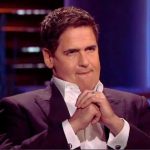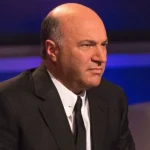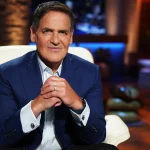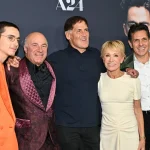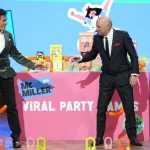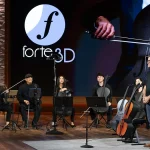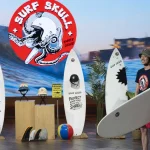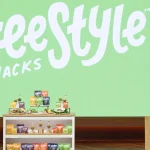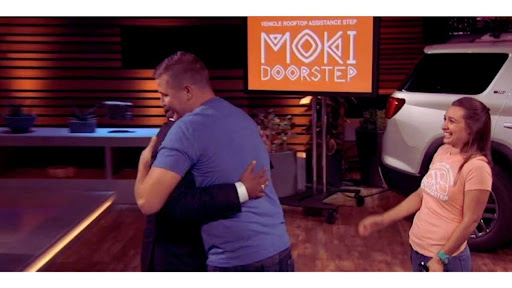
Credit: Screen Rant
Highlights
- Every Shark Tank judge carefully analyzes multiple angles of a business before investing.
- Despite failing to earn a patent, HyConn was able to earn millions by selling its 100% share to a prominent Shark.
- MokiDoorstep and RokBlok were two other budding companies whose entrepreneurs earned massive amounts by selling their entire business on Shark Tank.
Impressing the strong-headed investors on Shark Tank is a cumbersome affair. Be it Kevin O’Leary’s straight questions on valuation or Mark Cuban’s inquisitive approach to analyzing a product’s efficacy, entrepreneurs have to toil hard to grab a deal.
But there have been moments when even the Sharks’ calculative business minds like a product so much that they propose to buy its 100% share. This, in turn, has often compelled the entrepreneurs to accept the offer and earn huge.
Below listed are moments from different seasons where entrepreneurs sold their entire company on Shark Tank:
1. HyConn
Seeking a $500K investment for 40% equity, Jeff Stroope approached the investors in one of the earliest seasons of Shark Tank. Presenting HyConn, he focused on the idea of saving lives across the nation using an inventive solution. Here is all that happened during the interesting pitch:
Bearing fifteen years of experience as a fireman, Jeff came up with a quick solution for providing water at a faster rate than usual in fire-affected places. Comparing it to a traditional hose, he showed how HyConn’s could attach and detach from a hydrant easily and much faster, thereby emerging as a better option.
Jeff then revealed that he had previously approached some distributors of fire equipment to get a patent on his creation. None of them agreed to it but were ready for product distribution, provided that he started the manufacturing of products. This is why he had reached out to the Sharks.
Daymond John did not believe in the business vision, so he stepped out of the deal. Barbara Corcoran opted out, citing the high pricing structure.
The next investor was Mark Cuban, who offered $1.25 million, a fixed profit share, and an employee agreement for 3 years in return for 100% of HyConn.
Kevin O’Leary, too, made an offer, but only for the garden hose adapter. He proposed $500K for 100% of that particular product, along with a 3% sales royalty. Jeff accepted Mark’s offer in the end.
2. Moki Doorstep
Zachary and Alyssa Brown made their way to the judges seeking $150K for 5% equity. To put it in simple words, Moki Doorstep was a ‘step,’ which allowed one to get on the rooftop of their car quicker than ever. Here is a complete recap of the pitch and conversations between the
panelists and entrepreneurs.
Ideal for any vehicle, Moki Doorstep could be attached to its metal door latch. With this, one could easily get to about three feet above the ground, thereby accessing the top of the vehicle easily. Emphasizing his background as a firefighter, Zach stated his focus on safety, which led him to develop the design accordingly.
In 2017, the entrepreneurs used a Kickstarter initiative to earn funds for Moki Doorstep. The amount raised was a bit over $110K. Plus, they revealed their association with ‘Rightline Gear’ to achieve product distribution on a national scale. Available on Amazon, they sold car carriers, roof tents, and roof racks.
Robert Herjavec seemed impressed by the presentation and the product features. Kevin O’Leary, though, raised concerns regarding its pricing. He backed out from investing for the same reason. Zach then tried convincing the others by claiming to have a licensing deal, which offered $3 million for 7 years along with a royalty of 12.5%.
Daymond John was the only one to offer $450K for 20%. The entrepreneurs refused, saying it would be better if they sold the entire company. Hearing this, Daymond offered $3 million for 100% of Moki Doorstep.
The duo agreed, and the deal was locked.
3. RokBlok
Logan Riley, an inventor from California and the founder of a company named Pink Donut, came in with an offer seeking $300K in exchange for 15% of his product RokBlok. Here is how his clear-cut presentation impressed the investors, and one of them offered to buy 100% of the venture.
Logan started his intriguing pitch giving a quick background into Vinyl music recorders. He described how, despite the mesmerizing music, it brought along inconveniences in the form of a must-have requirement of a turntable pair of speakers, a good printer, etc. Additionally, the entire setup was not at all portable and was highly expensive.
But as per Logan, all of these issues could be tackled with RokBlok, an infinitely portable wireless record player. He then highlighted its amazing features, which left the sharks mighty impressed. However, they expressed their share of concerns when it came to making their investment offer.
Barbara Corcoran shared her apprehensions regarding investing in a product that was still in its early and vulnerable stages. Mark Cuban opted out of the deal owing to the company’s potentially small market. The deal was made by Kevin O’Leary, offering $300,000 for 15%. Lori Greiner did not invest due to its expensive nature.
But Robert Herjavec surprised everyone when he asked Logan to sell him 100 of RokBlok for $500K, join his company for 2 years at a six-figure contract, and get a royalty of $5 per unit that would be sold in the coming years.
Logan couldn’t resist and straightaway said “yes” to the huge offer.
Conclusion
Through numerous pitches in multiple seasons, Shark Tank has often shown that passion, authenticity, and clarity can help you achieve great results. Pitches like HyConn, Moki Doorstep, and RokBlok had the common aspects of creative ideas and clear business vision. These factors collectively led the investors to buy the entire company.
Additionally, these pitches act as ideal examples for budding entrepreneurs to achieve their business goals the right way.
References
1. Nurse and fireman are ‘Shark Tank’ instant millionaires — why Daymond John bought their company on the spot for $3 million, CNBC, Sarah Berger


